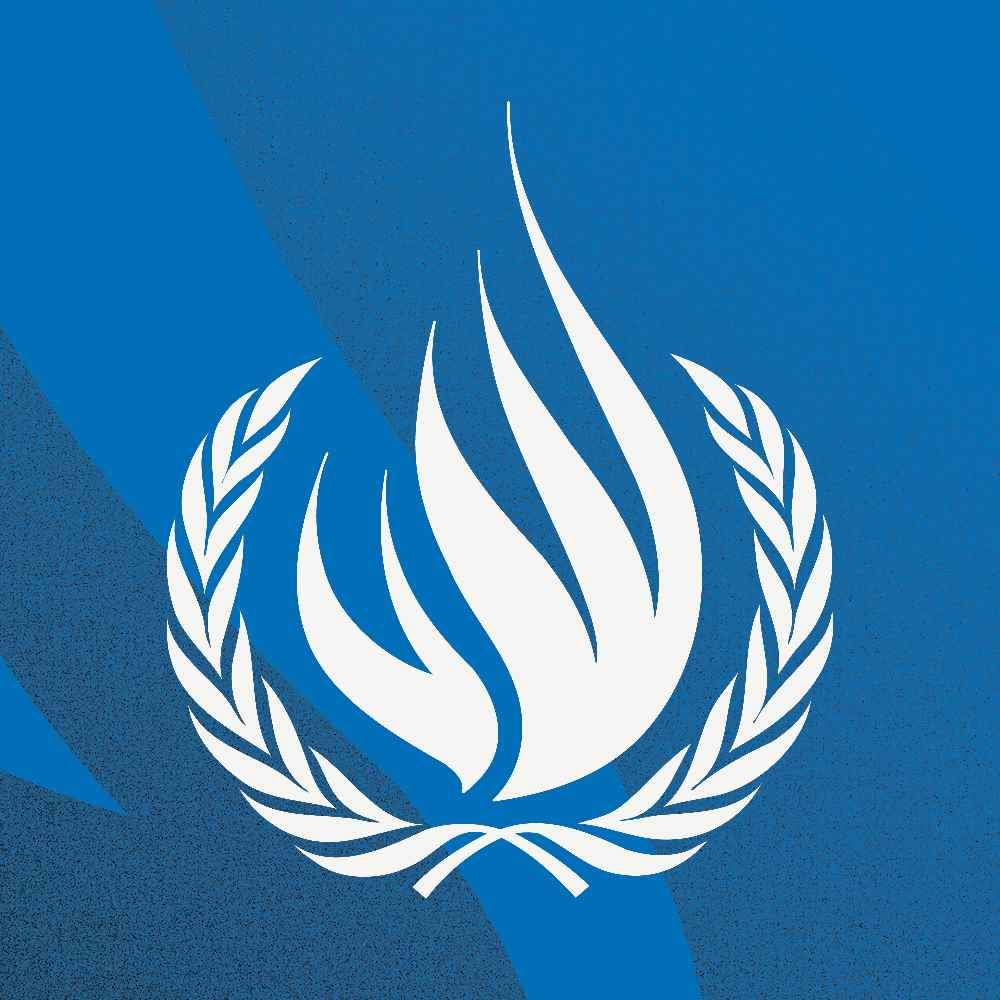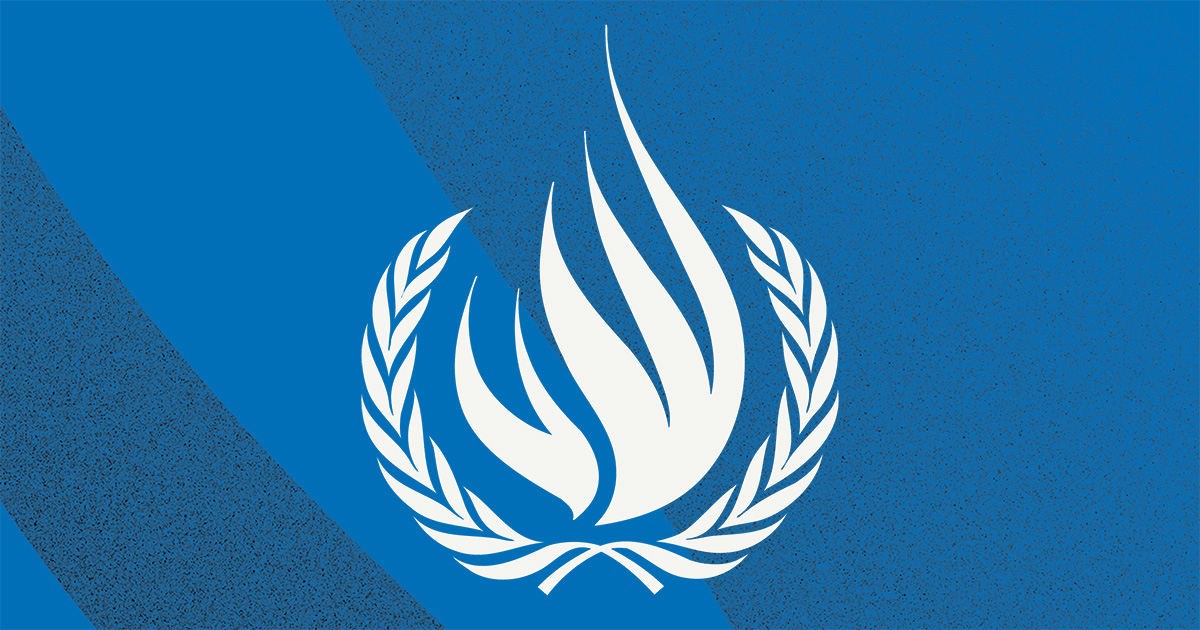
The Committee against Torture this morning closed its seventy-third session after adopting its concluding observations on the reports of Cuba, Iceland, Iraq, Kenya, Montenegro and Uruguay on their efforts to implement the provisions of the Convention against Torture and Other Cruel Inhuman or Degrading Treatment or Punishment.
Erdogan Iscan, Committee Rapporteur, presenting the annual report, said it covered the period from 29 April 2021 to 13 May 2022. As of today, there were 173 States parties to the Convention against Torture and other Cruel, Inhuman or Degrading Treatment or Punishment. Since the adoption of the last annual report, Sudan had ratified the Convention and Suriname had acceded to it. As of today, there were 91 States parties to the Optional Protocol to the Convention. Under article 22 of the Convention on communications, as of today, 216 complaints were pending consideration by the Committee.
Mr. Iscan said at the beginning of the session, the Committee elected Claude Heller as Chair. Ana Racu, Sébastien Touze, and Bakhtiyar Tuzmukhamedov, were elected as Vice Chairpersons, and Erdogan Iscan was elected as the Committee Rapporteur.
The report was adopted.
Claude Heller, Committee Chairperson, said the seventy-third session was held from 19 April to 13 May 2022. The Committee had adopted its concluding observations on the reports of Cuba, Iceland, Iraq, Kenya, Montenegro and Uruguay. The concluding observations would be available on the Committee webpage as of 1 p.m. today.
Mr. Heller said the Committee had adopted list of issues prior to reporting for Benin, Democratic Republic of the Congo, Germany, Greece, Mexico, Poland, South Africa, Togo and the United Kingdom.
The Committee is scheduled to hold its seventy-fourth session from 12 to 29 July 2022, during which it will consider the reports of Botswana, Nicaragua, State of Palestine and United Arab Emirates.
Summary of Concluding Observations
Cuba
Mr. Heller said that concerning Cuba"s report, the Committee took into consideration the State party"s situation vis a vis the repercussions of the unilateral measures imposed on the State that impacted its sovereignty, independence and socio-economic development. However, the Committee expressed concern at reports of arbitrary detentions, acts of intimidation, imprisonment and reprisals against human rights defenders and various civil society actors, and urged the State party to put an end to such practices. The Committee also indicated the importance of an independent and impartial judicial system.
As for the social protests of 11 July 2021 and the acts that followed, the Committee urged the State party to investigate swiftly, independently and exhaustively the arbitrary detentions, excessive use of force and mal-treatment, and to punish those responsible for these acts.
The Committee invited Cuba to consider the establishment of a national human rights institution in accordance with the Paris Principles as well as an independent mechanism for periodic unannounced visits to all places where persons deprived of their liberty were held.
Iceland
Concerning Iceland, Mr. Heller said the Committee expressed its concern at the legal framework allowing up to four weeks of solitary confinement in pre-trial detention, and an even longer period for persons accused of an offence that carried a ten-year prison sentence or longer. While welcoming the State party’s willingness to examine the legislative and procedural framework further, the Committee urged Iceland to bring its legislation and practice regarding solitary confinement into line with international standards.
The Committee welcomed several legislative steps taken by the State party as well as progress made at the policy and institutional level to prevent and combat sexual and gender-based violence. Nevertheless, it remained concerned that the cases of domestic and sexual violence, including rape, remained high, and the available number of prosecutions vis-à-vis the reported incidents seemed limited. The Committee asked Iceland to strengthen its ongoing efforts to ensure that all cases of sexual and gender-based violence were thoroughly investigated, the alleged perpetrators were prosecuted, and the victims adequately redressed.
Iraq
Mr. Heller said that concerning Iraq, the Committee expressed concerns at continued reports of torture or ill-treatment in detention facilities, notably during investigative phases of proceedings. In this connection, it observed that the mechanisms established by Iraq to receive and investigate complaints of torture and ill-treatment by officials had not been leading in practice to meaningful accountability for perpetrators. Hence, it urged the State party to immediately address the question of impunity and adopt measures to ensure accountability in practice.
The Committee expressed further concerns at reports that capital punishment sentences continued to be imposed and carried out, notably under the counter-terrorism legislation. Accounts indicated that prisoners on death row in Nasiriyah central prison were held in dire material conditions and often subjected to torture and ill-treatment, including false threats from the prison guards about their imminent execution. As a result, the Committee called upon Iraq to establish a moratorium on the death penalty and improve the conditions of prisoners on death row.
Kenya
Concerning Kenya, Mr. Heller said the Committee expressed its serious concern about reported cases of enforced disappearances and excessive use of force, including lethal force by shooting, during arrests or in policing demonstrations, in the period surrounding the 2017 elections, and the low number of investigations, prosecutions and convictions of perpetrators. It recommended that the State party ensure that prompt, impartial and effective investigations were undertaken into all allegations relating to extrajudicial killings, enforced disappearances and excessive use of force by law enforcement officers and military personnel, and ensure that the alleged perpetrators were prosecuted and the victims adequately compensated.
The Committee appreciated the efforts made by the State party to combat impunity for acts of torture and ill-treatment. However, in view of the numerous allegations and complaints of torture and ill-treatment by State officials, especially by police officers, in places of deprivation of liberty and during policing activities, and the reports that the police oversight mechanisms remained ineffective, the Committee expressed its deep concern at the lack of accountability, which contributed to an environment of impunity. It recommended that the State party ascertain that all allegations of acts of torture or ill-treatment by police officers, military forces or National Intelligence Service personnel were promptly, effectively and impartially investigated, duly prosecuted as torture or other cruel, inhuman or degrading treatment or punishment, and that perpetrators were punished appropriately if found guilty.
Montenegro
Mr. Heller said that as for Montenegro, while welcoming a number of positive legislative and policy initiatives since its previous review, the Committee expressed its concern at gaps in relation to effective implementation in a number of areas. The Committee remained concerned at the persistence of reports of torture and ill-treatment of suspects held in police custody, the low number of convictions and the leniency of sentencing for those convicted of such acts. It recommended that all complaints of torture and ill-treatment be promptly and independently investigated, that suspected perpetrators be immediately suspended from duty for the duration of the investigation and, if found guilty, receive penalties commensurate with the seriousness of their actions.
Regarding conditions of detention, the Committee recommended that the State party intensify its efforts to eliminate overcrowding and improve conditions in prisons and other places of detention, including psychiatric facilities, bringing conditions into line with international standards, notably the United Nations Standard Minimum Rules for the Treatment of Prisoners (the Nelson Mandela Rules).
Uruguay
Concerning Uruguay, Mr. Heller said the Committee commended efforts made by Uruguay to reduce prison overcrowding and recent legislative developments related to gender violence, human trafficking and investigation of crimes against humanity committed in 1968-1985.
However, the Committee expressed concerns about some legislative initiatives which weakened fundamental legal safeguards, created risk of arbitrary use of force by the police, and increased a punitive approach towards children in conflict with the law. The Committee also denounced poor detention conditions in prisons, lack of proper medical assistance to detainees, and little progress in investigation of complaints against police violence and of grave human rights violations. It called upon Uruguay to investigate all cases of death in custody, develop strategies for a prison system reform and healthcare for prisoners, and establish effective mechanisms for reporting torture and ill-treatment.
Other Matters
Mr. Heller said that during this session, the Committee had examined 15 individual complaints under the complaints procedure and adopted 10 decisions on the merits and five decisions on admissibility. Additionally, five complaints were discontinued in accordance with the Committee"s rules of procedure. The Committee also examined progress in implementation of five previous decisions and decided to keep the follow-up dialogue open in all of them.
The Committee Rapporteurs on follow-up to concluding observations, follow-up to communications under article 22, and follow-up to reprisals had presented their reports.
Mr. Heller said the Committee met with the Subcommittee on the Prevention of Torture on 25 April, during which Suzanne Jabbour, Chairperson of the Subcommittee, had presented the Subcommittee’s annual report. It also met with the United Nations Working Group on Arbitrary Detention.
On strengthening the treaty body system, Mr. Heller said that there were many challenges that the treaty bodies faced due to a lack of human and financial resources which undermined full compliance with the Committee’s mandates. The Committee’s work was of utmost importance. He thanked the Committee Experts for their work and efforts.
Link: https://www.ungeneva.org/en/news-media/meeting-summary/2022/05/committee-against-torture-closes-its-seventy-third-session-after








